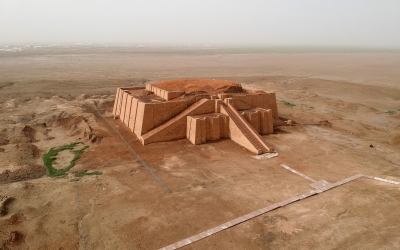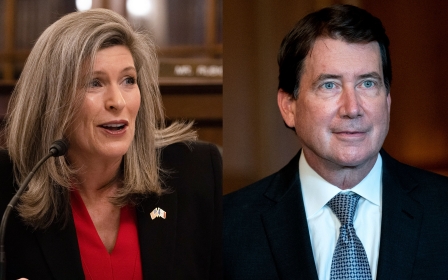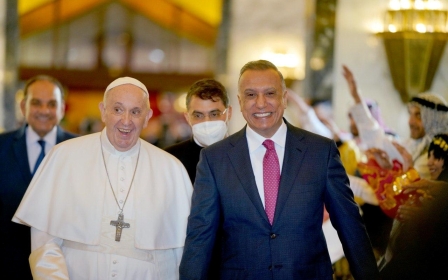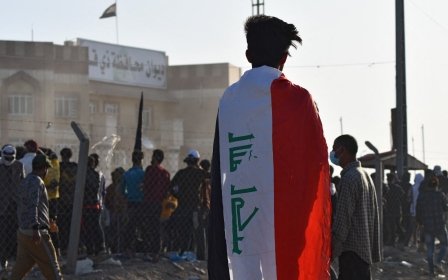Pope Francis meets Iraq's top cleric Ali Sistani in 'historic' meeting
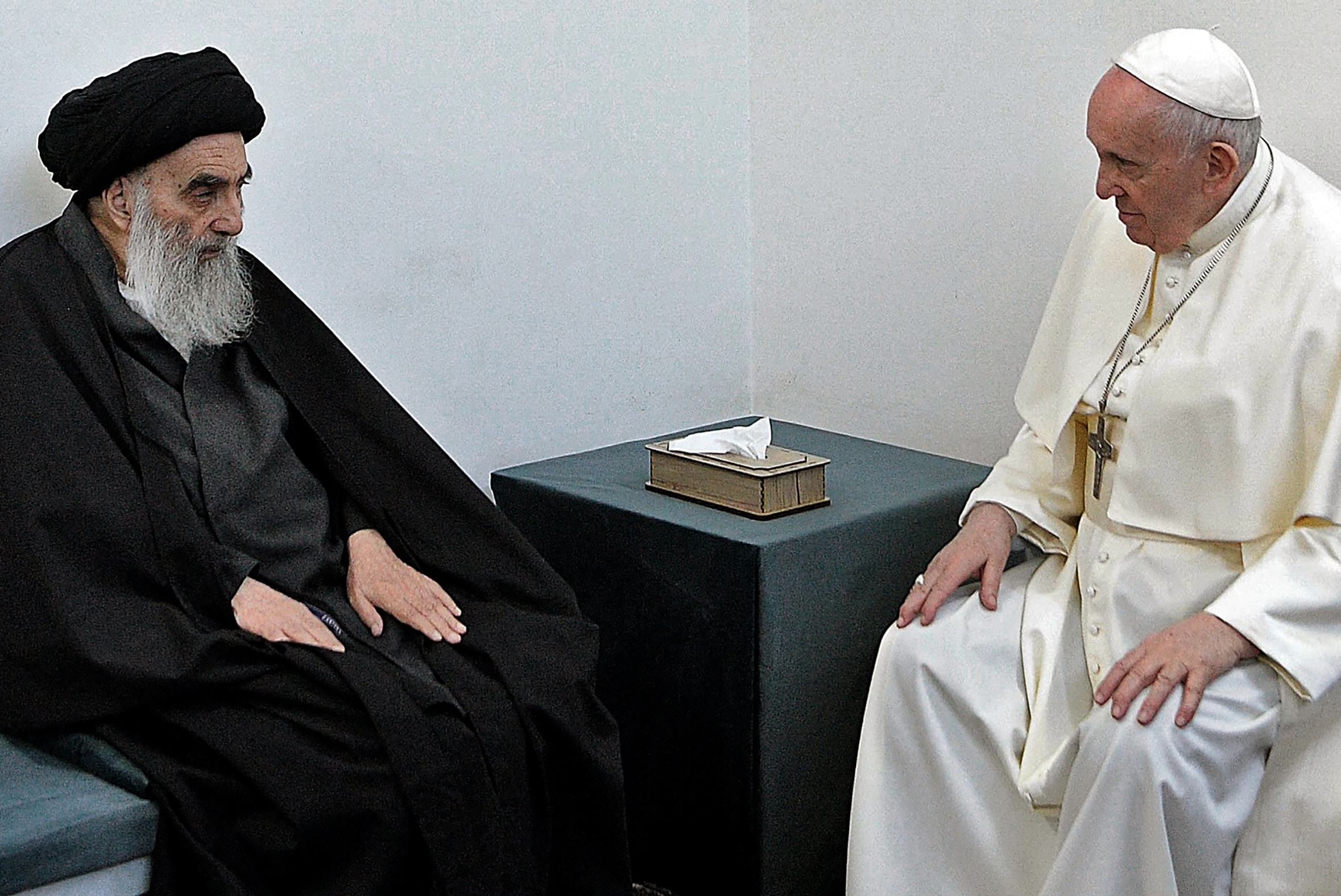
Iraqis have hailed a "historic" meeting between Pope Francis and the country's most senior Shia cleric, Grand Ayatollah Ali Sistani, at which both reiterated their commitment to religious tolerance.
The meeting came on the second day of the first-ever papal visit to Iraq, with the pope defying a second wave of coronavirus cases and renewed security fears to make a "long-awaited" trip to the country.
The leader of the Catholic Church has stated his aim to comfort the country's ancient Christian community and deepen his dialogue with other religions.
His meeting with the highest authority in Shia Islam lasted 50 minutes, with Sistani's office putting out a statement shortly afterwards thanking Francis, 84, for visiting the holy city of Najaf.
New MEE newsletter: Jerusalem Dispatch
Sign up to get the latest insights and analysis on Israel-Palestine, alongside Turkey Unpacked and other MEE newsletters
Sistani, 90, "affirmed his concern that Christian citizens should live like all Iraqis in peace and security, and with their full constitutional rights," it said.
His office published an image of the two, neither wearing masks, Sistani in a black turban with his wispy grey beard reaching down to his black robe and Francis all in white, looking directly at the grand ayatollah.
Sistani is extremely reclusive and rarely grants meetings but made an exception to host Francis, an outspoken proponent of interreligious dialogue.
The pope had landed earlier at Najaf airport, where posters had been set up featuring a famous saying by Ali, the fourth caliph and relative of the Prophet Muhammad. Ali is buried in the holy city.
"People are of two kinds, either your brothers in faith or your equals in humanity," read the banners.
'High moral authority'
The meeting is one of the highlights of Francis's four-day trip to war-scarred Iraq, where Sistani has played a key role in tamping down tensions in recent decades.
It took months of careful negotiations between Najaf and the Vatican to secure the one-on-one meeting.
"We feel proud of what this visit represents, and we thank those who made it possible," said Mohamed Ali Bahr al-Ulum, a senior cleric in Najaf.
Pope Francis, a strong proponent of interfaith dialogue, has met top Sunni clerics in several Muslim-majority countries, including Bangladesh, Morocco, Turkey and the United Arab Emirates.
Sistani is followed by most of the world's 200 million Shia - a minority among Muslims but the majority in Iraq - and is a national figure for Iraqis.
"Ali Sistani is a religious leader with a high moral authority," said Cardinal Miguel Angel Ayuso Guixot, the head of the Pontifical Council for Interreligious Dialogue and a specialist in Islamic studies.
Sistani began his religious studies at the age of five, climbing through the ranks of Shia clergy to grand ayatollah in the 1990s.
While Saddam Hussein was in power, he languished under house arrest for years, but emerged after the US-led invasion toppled the repressive regime in 2003 to play an unprecedented public role.
In 2019, he stood with Iraqi protesters demanding better public services and rejecting external interference in Iraq's domestic affairs.
On Friday in Baghdad, Pope Francis made a similar plea.
"May partisan interests cease, those outside interests who don't take into account the local population," Francis said.
'Great prestige'
In Abu Dhabi in 2019, the pope met Sheikh Ahmed al-Tayeb, the imam of the Al-Azhar mosque in Cairo and a key authority for Sunni Muslims.
They signed a text encouraging Christian-Muslim dialogue, which Catholic clerics hoped Sistani would also endorse, but clerical sources in Najaf told AFP that is unlikely.
While the pope has been vaccinated against Covid-19 and has encouraged others to get the jab, Sistani's office has not announced his vaccination.
Iraq is currently gripped by a resurgence of coronavirus cases, recording more than 5,000 infections and more than two dozen deaths daily.
Following his visit to the grand ayatollah, the pope is set to head to the desert site of the ancient city of Ur - believed to be the birthplace of the Prophet Abraham, common patriarch of the Christian, Jewish and Muslim faiths - where he will host an interfaith service, with many of Iraq's other religious minorities in attendance.
Middle East Eye delivers independent and unrivalled coverage and analysis of the Middle East, North Africa and beyond. To learn more about republishing this content and the associated fees, please fill out this form. More about MEE can be found here.


